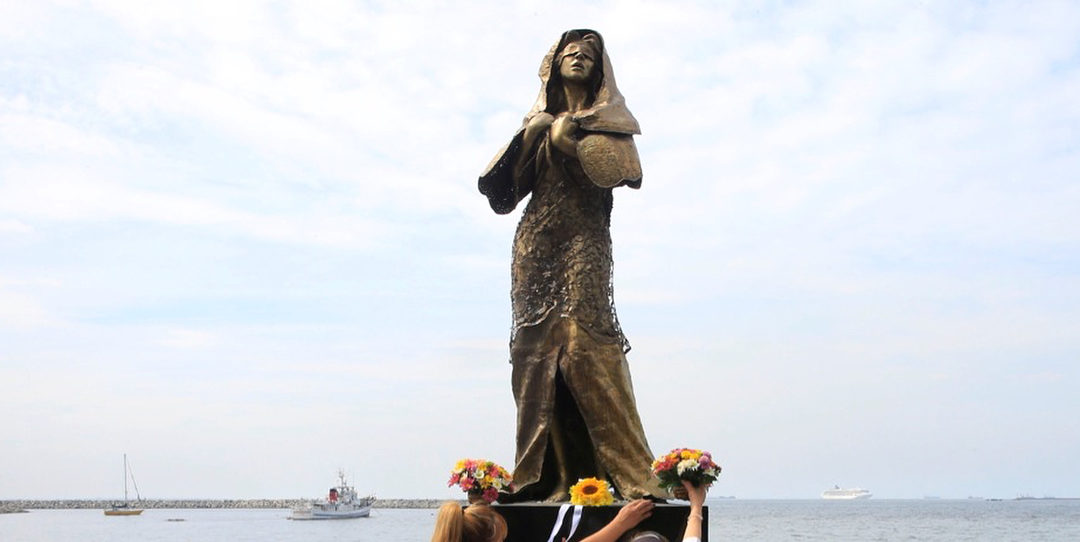Seven decades have passed since the harrowing times of the war and many of these comfort women have already passed away, but we still remember the trying times of these Filipinas up to this very day. It is a very dark and tragic part of our history, one that must not be kept silent, as a reminder of the brutality that they endured in those grim days.
Comfort women were women and even young girls who were forced into sexual slavery by the Japanese Imperial Army in their occupied territories before, during, and after World War II. The name “comfort women” is a translation of the Japanese ianfu a euphemism for “prostitutes.” It has been decades since the four-year-long occupancy of the Japanese here in the Philippines, where Filipinas were bounded into sexual slavery, but the details of their servitude remain painful and politically divisive here in the country, and even in Japan.
The mass rapes horrified the world. Emperor Hirohito was concerned with its impact on Japan’s image, and legal historian Carmen M. Agibay notes, he ordered the military to expand its so-called “comfort stations,” or military brothels, in an effort to prevent further atrocities, reduce sexually transmitted diseases and ensure a steady and isolated group of prostitutes to satisfy Japanese soldiers’ sexual appetites.
According to History, “recruiting” women for the brothels amounted to kidnapping or coercing them. They were rounded up on the streets, convinced to travel to what they thought were nursing units or jobs, or purchased from their parents as indentured servants. Once they were at the brothels, they were forced to have sex with their captors under brutal, inhumane conditions. Though each woman’s experience was different, their testimonies share many similarities: repeated rapes that increased before battles, agonizing physical pain, pregnancies, sexually transmitted diseases, and bleak conditions.
Writer Evelina Galang took almost 20 years to chronicle one of our nation’s greatest traumas, as she shared the experiences of Filipina comfort women in her manuscript Lolas’ House: Survivors of Wartime Rape Camps. “I’ve been writing this book for a lifetime,” she told Huffpost.
“These comfort women were mostly 13, 14, 15 years old. They weren’t really women, they were girls,” Evelina said of the victims, who are now so old and are lolas (grandmas). “They were forced to do labor and raped up to 20, 30 times a day, every single day. The tragedy is colossal.”
By then, between 20,000 and 410,000 women had been enslaved in at least 125 brothels. In 1993, the UN’s Global Tribunal on Violations of Women’s Human Rights estimated that 90 percent of the “comfort women” had died at the end of World War II.
However, documents on the system were destroyed by Japanese officials when the war ended, which is why the numbers are based on estimates by historians that rely on a variety of extant documents. As Japan rebuilt after World War II, the story of its enslavement of women was downplayed as a distasteful remnant of a past people would rather forget.
Meanwhile, women who had been forced into sexual slavery became societal outcasts. Many died of sexually transmitted infections or complications from their violent treatment at the hands of Japanese soldiers; others committed suicide. For decades, the history of the “comfort women” went undocumented and unnoticed. When the issue was discussed in Japan, it was denied by officials who insisted that “comfort stations” had never existed.
But in 1980, women started speaking up and began sharing their stories. Filipinas started discussing their ordeals publicly, especially after the country gained democracy. In the years that followed, more and more women have come forward to give testimony. This is why it has turned into an issue of national significance which concerns the entire Filipino people, whose tendency to be forgetful could undermine the comfort women’s call for justice, and threaten to erase from the collective memory this tragic part of our history.
Today, the memory of the comfort women who horribly suffered during the Japanese era still lives and should still continue to exist for as long as history does. Their struggles remind us of the plight of women under a great superpower.
ABS CBN News reports that a new historical marker dedicated to Filipino “comfort women” was unveiled Sunday at a church in Manila, over a year after a similar memorial in the capital was removed due apparently to Japanese pressure. Local women’s groups Lila Pilipina and the Gabriela Women’s Party and nongovernment organization Kaisa Para sa Kaunlaran (Unity for Progress) unveiled the large granite monument with a metal plaque.
There are an estimated 1,000 Filipino women who were believed to have been sexually abused by Japanese soldiers during their occupation who have since stepped forward since the 1990s to tell their stories.
Photo courtesy of The Guardian’s Instagram account
For the latest in culture, fashion, beauty, and celebrities, subscribe to our weekly newsletter here
Follow Preen on Facebook, Instagram, Twitter, YouTube, and Viber
Related stories:
Wear history today with these modern day Filipinianas
Nikki Luna’s “Lady of the House” shows the tragic plight of Filipina migrant workers
This rape case shows misogyny and male privilege are still abound in the #MeToo era
Convicted rapist Antonio Sanchez might walk free, and you should be concerned


